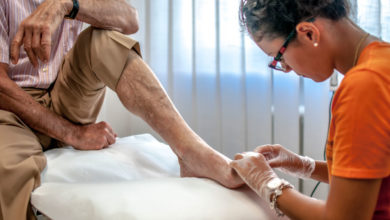In the perspective of a future doctor, Caribbean schools are essentially another option. Statistically speaking, only about a half of all medical school applicants get accepted into a US medical school every year. To increase their chances, many students opt to apply to Caribbean schools as somewhat of a “safety” school. Though an international program, there are many Caribbean schools that are licensed so that its graduates can obtain residency and eventually practice in the United States as well as Canada. In general, admissions to Caribbean medical schools are less competitive and the application process simpler. Despite these pros, students need to be cautious because this alternative comes with potential disadvantages. Medical school applicants need to research into each Caribbean school to make sure it is the right fit for them.
Arguably the most important question potential applicants need to ask is whether they will actually become a doctor by enrolling in a particular Caribbean school. Many doctors will tell you that the hardest obstacle to overcome on the road to becoming a physician is getting into medical school. This is because virtually all US medical school graduates obtain positions as physicians. In other words, if you get into a US medical school, the odds are greatly in your favor that you will one day become a physician. Unfortunately, the same cannot be said about Caribbean schools. There are Caribbean schools that have high success rates, but then there are others that have relatively bad reputations.
Before enrolling in a Caribbean medical school, applicants should ask two important questions regarding that school:
- What percent of students successfully graduate from that medical school?
- What percent of those graduates are successful in obtaining residency in the United States?
Remember that the two most important steps in becoming a doctor are to graduate medical school, and to enter a residency program. There is no way around these steps so it is crucial that respective Caribbean schools have a good track record in these areas.
There are some Caribbean schools that have a high graduation rates and there are some who are notorious for their high drop-out rates. In general, Caribbean medical schools tend to have a much lower graduation rate than US medical schools. There are two main reasons why this may be. The first reason is that Caribbean schools do not provide adequate support to its students to put them in a position of academic success. Due to this lack of support, students often feel overwhelmed and see dropping out as the most viable option. Another possible argument for a low graduation rate is that Caribbean medical students were not ready for medical school from the start. Caribbean schools’ admissions criteria is usually lower than that of their US counterparts; however, this does not mean that their curriculum is easier. It is common for students to enter Caribbean medical schools only to find out they are not academically ready for medical school. Either way, applicants can prevent wasting their valuable time and finances if they do their research.
After overcoming the obstacle of graduating, it is also vital for graduates to obtain residencies. There are a few Caribbean medical schools that are known to have strong residency connections within the United States. Graduates of these schools are obviously the most likely to obtain residency in the United States. In contrast, there are Caribbean schools that have little to no connections to US residencies. Graduates of these schools often find it extremely difficult to become a licensed practicing doctor even though they graduated from medical school. Again, it is important for prospective applicants to do their research on each Caribbean schools they want to apply to. It can be tempting to enroll in a Caribbean medical school if that is the only option available. However, one must carefully assess what the likelihood of becoming a doctor is at that school. Enrolling in medical school does not mean anything if you do not end up a doctor.
Currently, there are about 30 Caribbean medical schools that claim they can place their graduates in US residencies. Out of these schools, only a handful have proven that they can train good doctors who practice in the United States. The most popular and reputable institutions are St. Georges University, American University of the Caribbean School of Medicine, Ross University School of Medicine, and Saba University School of Medicine; these institutions are often referred to as the “Big Four” medical schools of the Caribbean. Whether you enroll in one of the “Big Four” or you enroll somewhere else, one needs to carefully examine each school to make sure that it is a school in which they can succeed.



